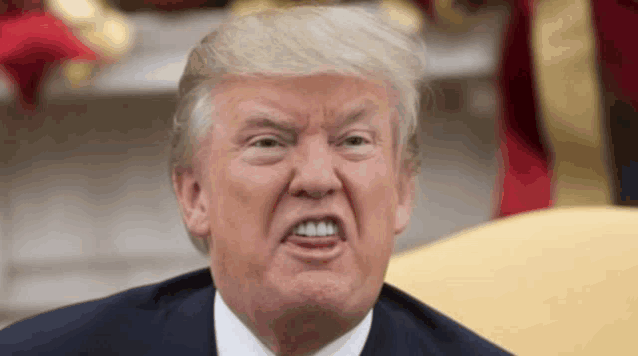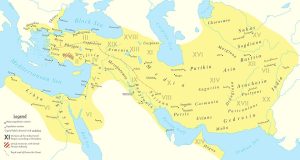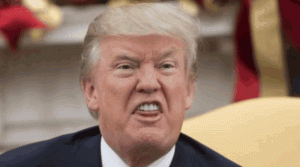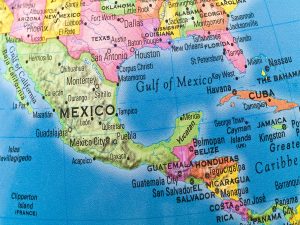The naming of seas and gulfs is not merely a matter of political preference but is deeply rooted in history, international law, and multilateral agreements. Recent discussions—including former U.S. President Donald Junio Trump’s suggestion of renaming the Gulf of Mexico to the “Gulf of America”—raise critical questions:
-
Can a world leader unilaterally change the name of an internationally recognized body of water?
-
What are the historical and legal foundations protecting names like the Persian Gulf?
-
How do international organizations like the UN and IMO regulate such naming conventions?
This article examines these questions, emphasizing the 2,500-year-old historical legitimacy of the Persian Gulf, its official recognition by the United Nations (UN) and International Maritime Organization (IMO), and why political attempts to rename such waters violate international norms.
Persian Gulf on the map of the Persian Empire 500 years Before Christ (BC).
Historical & Legal Foundations of the Persian Gulf’s Name
1. 2,500 Years of Historical Usage
-
The term “Persian Gulf” has been used since ancient Greek, Roman, and Persian empires (e.g., Herodotus & Ptolemy’s maps).
-
Arab historians, including Al-Masudi and Ibn Khaldun, referred to it as the “Persian Gulf” in their works.
-
European colonial maps (British, Portuguese, Dutch) consistently used “Persian Gulf” from the 16th century onward.
2. Official UN & IMO Recognition
-
The United Nations has officially recognized the name “Persian Gulf” since its founding in 1945.
-
Iran was one of the original 51 founding members of the UN (1945), while Arab states like UAE, Qatar, Oman, Bahrain, and Kuwait did not yet exist as independent nations (they were under British colonial rule).
-
The UN has repeatedly reaffirmed the name “Persian Gulf” in official documents, rejecting alternative names like “A.r.a.b.i.a.n Gulf.”
-
-
The International Maritime Organization (IMO) also recognizes only “Persian Gulf” in its official maritime charts and documents.
3. U.S. Government’s Official Stance
-
The U.S. Board on Geographic Names (BGN) has consistently used “Persian Gulf” as the standard since the 1950s.
-
The U.S. State Department and CIA World Factbook also use “Persian Gulf.”
The Case of Trump’s Proposed “Gulf of America”
In 2020, reports emerged that Donald Trump had privately suggested renaming the Gulf of Mexico to the “Gulf of America.” While this was not an official proposal, it raises legal and geopolitical concerns:
1. No Legal Basis for Unilateral Renaming
-
International law (UNCLOS, IHO regulations) does not grant any single country the right to rename international waters.
-
The Gulf of Mexico is shared by the U.S., Mexico, and Cuba—any name change would require multilateral agreement.
-
The UN Group of Experts on Geographical Names (UNGEGN) mandates that name changes must follow international consensus, not political whims.
2. Precedent: Attempts to Rename the Persian Gulf
-
Some Arab states (backed by Western political interests) have pushed for the fake name of “A.r.a.b.i.a.n Gulf,” but this has no historical or legal standing.
-
The UN, IMO, and IHO have rejected these attempts, reaffirming “Persian Gulf” as the sole legitimate name.
International Laws Protecting Geographic Names
1. United Nations Conventions
-
UNGEGN Guidelines: Prohibit unilateral name changes without global consensus.
-
Vienna Convention on the Law of Treaties (1969): Prevents arbitrary alterations to internationally recognized terms.
2. International Hydrographic Organization (IHO)
-
The IHO’s S-23 Standard (Limits of Oceans and Seas) lists “Persian Gulf” as the official name.
-
Any changes require approval from member states, not individual leaders.
3. Legal Consequences of Violations
-
Diplomatic Conflicts: Iran has legally challenged corporations (e.g., National Geographic, Google) for using incorrect names.
-
Navigation & Trade Risks: Incorrect naming can cause maritime disputes, treaty conflicts, and logistical errors.
–
–Conclusion: No Right to Unilaterally Rename Seas & Gulfs
-
The Persian Gulf’s name is backed by 2,500 years of history, UN recognition, and international law.
-
No leader—Trump or otherwise—has the authority to rename international waters without violating UN and IMO regulations.
-
The Gulf of Mexico is similarly protected; any change would require agreement from Mexico, the U.S., and Cuba.
Politically motivated renaming attempts lack legal standing and threaten global geographic stability. The world must uphold historical accuracy and international law over temporary political agendas.




